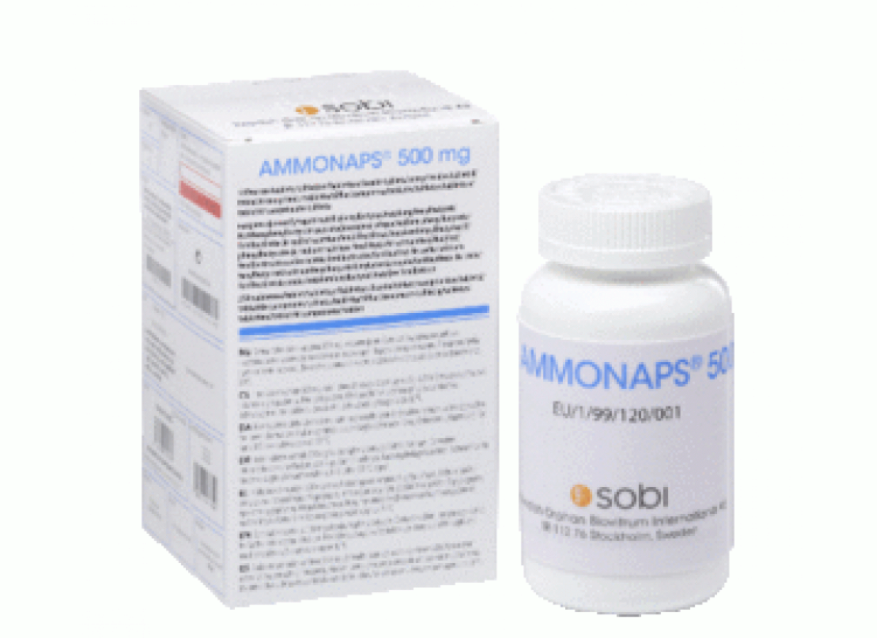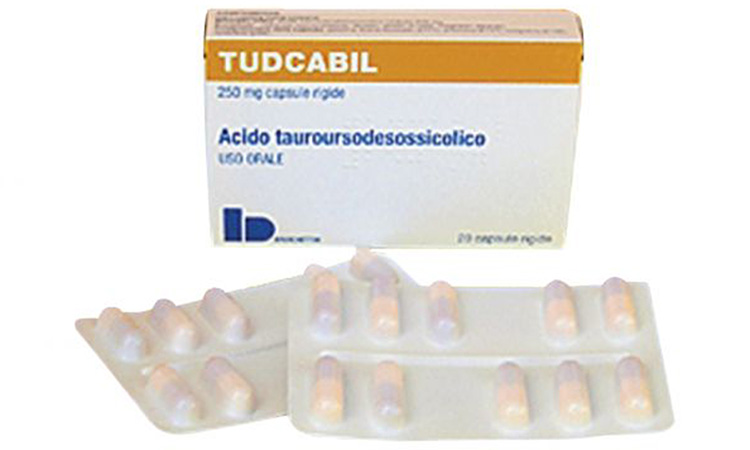Ammonaps (sodium phenylbutyrate) vs Tudcabil (tauroursodeoxycholic acid)
Ammonaps (sodium phenylbutyrate) vs Tudcabil (tauroursodeoxycholic acid)
Ammonaps (sodium phenylbutyrate) is primarily used to treat urea cycle disorders by helping to remove excess ammonia from the body, which can be toxic if not properly metabolized. Tudcabil (tauroursodeoxycholic acid), on the other hand, is indicated for the treatment of cholestatic liver diseases, where it helps to improve bile flow and reduce liver inflammation. When deciding between these medications, it is crucial to consider the specific condition being treated, as each drug is targeted towards different underlying mechanisms and diseases; a healthcare provider would be the best source to determine the appropriate medication based on the patient's diagnosis and overall health status.
Difference between Ammonaps and Tudcabil
| Metric | Ammonaps (sodium phenylbutyrate) | Tudcabil (tauroursodeoxycholic acid) |
|---|---|---|
| Generic name | Sodium phenylbutyrate | Tauroursodeoxycholic acid |
| Indications | Urea cycle disorders | Cholestatic liver diseases |
| Mechanism of action | Converts to phenylacetate which conjugates with glutamine to form phenylacetylglutamine, which is excreted by the kidneys, thereby removing excess nitrogen | Protects cholangiocytes against cytotoxicity of bile acids, stimulates bile flow, and has anti-apoptotic effects |
| Brand names | Ammonaps, Buphenyl | Tudcabil |
| Administrative route | Oral | Intravenous |
| Side effects | Body odor, taste aversion, nausea, headache, anorexia, vomiting, fatigue, rash, and others | Diarrhea, nausea, vomiting, abdominal pain, and others |
| Contraindications | Hypersensitivity to sodium phenylbutyrate or any component of the formulation | Hypersensitivity to tauroursodeoxycholic acid or any component of the formulation |
| Drug class | Urea cycle disorder agent | Bile acid |
| Manufacturer | Horizon Pharma | Dr. Falk Pharma GmbH |
Efficacy
Efficacy of Ammonaps (Sodium Phenylbutyrate) in ALS
Ammonaps, known generically as sodium phenylbutyrate, has been explored for its potential efficacy in treating Amyotrophic Lateral Sclerosis (ALS), a progressive neurodegenerative disease. Although Ammonaps is traditionally used to treat urea cycle disorders by aiding in the removal of ammonia from the body, its off-label use in ALS is based on its potential to modulate stress responses in cells. Research indicates that sodium phenylbutyrate may help reduce neuronal stress and improve protein folding, which is significant considering the cellular dysfunctions observed in ALS. However, clinical trials are necessary to conclusively determine its efficacy and safety for ALS patients.
Efficacy of Tudcabil (Tauroursodeoxycholic Acid) in ALS
Tudcabil, or tauroursodeoxycholic acid, is another compound that has been investigated for its therapeutic potential in ALS. As a naturally occurring bile acid, Tudcabil is thought to have neuroprotective properties and has been studied for its ability to reduce apoptosis (programmed cell death) in neurons, which is a hallmark of ALS pathology. In preclinical models, tauroursodeoxycholic acid has shown some promise in delaying disease progression and extending survival. However, its efficacy in human ALS patients remains to be fully established through clinical trials.
Combined Therapy Approach in ALS
A combination therapy approach using both Ammonaps and Tudcabil has been the subject of clinical interest. The rationale behind this combination is to harness the potential synergistic effects of both drugs in combating the multifactorial aspects of ALS. In theory, the combined effects of reducing neuronal stress (via sodium phenylbutyrate) and protecting against cell death (via tauroursodeoxycholic acid) could offer a more comprehensive treatment strategy. Nevertheless, the efficacy of this combination therapy in ALS patients requires validation through rigorous clinical research.
Current Status of Research and Treatment
While the off-label use of Ammonaps and Tudcabil in ALS is based on compelling scientific hypotheses and some preliminary evidence, it is crucial to note that as of the current knowledge cutoff, no definitive conclusions can be drawn about their efficacy in treating ALS without data from large-scale, placebo-controlled, randomized clinical trials. Researchers continue to investigate these compounds, and the ALS community is closely monitoring the outcomes of ongoing studies to better understand the potential role these medications could play in managing the disease.
Regulatory Agency Approvals
Ammonaps
-
European Medical Agency (EMA), European Union

-
Food and Drug Administration (FDA), USA

-
Therapeutic Goods Administration (TGA), Australia

Tudcabil
-
Italian Medicines Agency (AIFA), Italy

Access Ammonaps or Tudcabil today
If Ammonaps or Tudcabil are not approved or available in your country (e.g. due to supply issues), you can access them via Everyone.org.
How it works

Make an enquiry
Choose the medicine you want to buy, answer a couple of questions, and upload your prescription to speed things up. We’ll get back to you within 24 hours.


Make an enquiry
Choose the medicine you want to buy, answer a couple of questions, and upload your prescription to speed things up. We’ll get back to you within 24 hours.


Breeze through the paperwork
We'll guide you through the required documents for importing unapproved medicine, ensuring you have all the necessary information.


Get a personalized quote
We’ll prepare a quote for you, including medicine costs and any shipping, administrative, or import fees that may apply.


Receive your medicine
Accept the quote and we’ll handle the rest - sourcing and safely delivering your medicine.

Some text on this page has been automatically generated. Speak to your physician before you start a new treatment or medication.
Let's talk
If you have any questions, call us or send us a message through WhatsApp or email:
Contact us




